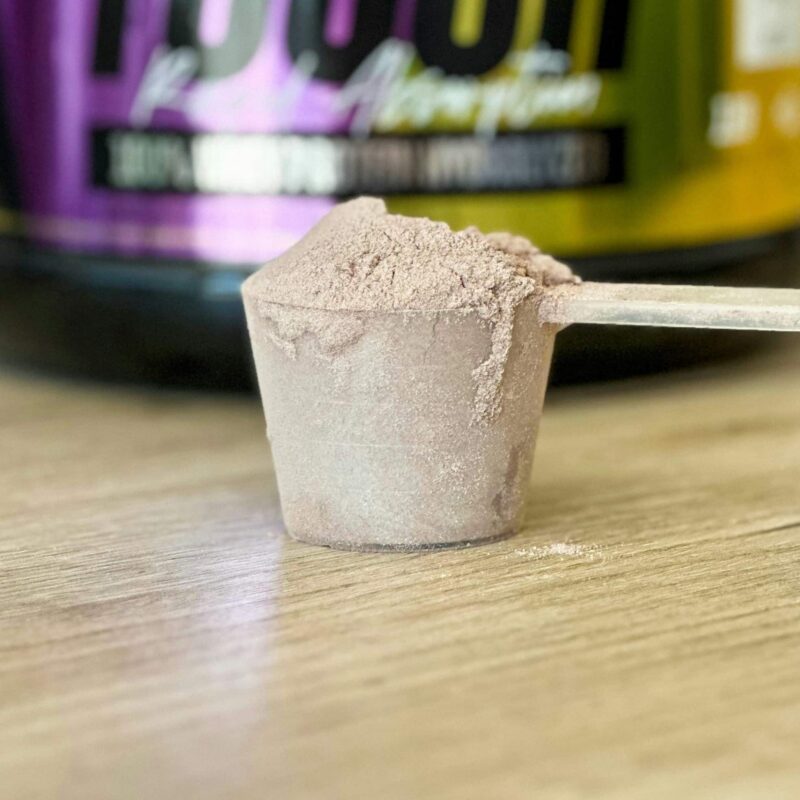
Blog
4 Types Of Protein Shakes And Their Digestion Time

While consuming protein shakes, it’s better to understand the algorithms of how protein acts in the body and how long it takes to digest. The digestion time is especially useful for people who take protein shakes as a meal replacement option. So, how long does a protein shake take to digest?
In general, fast-digesting protein (20 grams) takes 2 hours to digest, and slow-digesting protein (20 grams) can take more than 15 hours to digest. It also depends on the liquid base of the shake.
However, the digestion time can differ depending on the individual’s metabolism and the type of protein consumed. Let’s discuss these factors and learn more about fast and slow-digesting proteins.
Types of protein shakes and their digestion time

The thing is, how long a protein shake takes to digest will depend on its type. So, we’ll discuss the different types of protein powders. This will help you understand the exact digestion time of the type of protein powder you consume.
Whey protein
Whey protein is one of the best sources of high-quality protein. That is why it is becoming more popular among regular gym-goers.
Whey protein is further of two types:
- Whey protein concentrate (WPC)
- Whey protein isolate (WPI)
Whey protein isolate contains a higher concentration of protein compared to whey protein concentrate. It is because WPI is further processed to remove the fat and lactose, leaving behind high-quality protein. In this way, WPI is pure, making it easily digestible.
On the other hand, WPC is a more affordable option.
When compared to other forms of protein, whey protein has the highest biological content and is the more easily digestible type of protein powder.
Let’s check the science behind this claim.
Studies say that the absorption rate of whey protein is 10g per hour. In this case, it would take 2 hours to digest 20g of whey protein shake. Experts also say that it takes around 1.5 hours for whey protein to navigate the gastrointestinal tract.
However, we need to consider a point here. There is hydrolysed whey protein, too, which means that the whey is pre-digested. This type of whey protein will only take 1-1.5 hours to digest.
Another thing to note is that although whey protein is a fast-digesting protein, the digestion time can be longer if you consume whey protein powder with milk. In this case, the protein shake stays in your stomach, making you feel full for a long time.
Thus, it’s best to consume your whey protein shake immediately after a workout. After all, it’s going to digest quickly!
Soy protein
Soy protein comes in the category of plant-based protein and is considered a medium-digesting protein. Also, most of its properties are similar to whey protein.
That being said, the typical digestion time of soy protein is 3-4 hours.
The longer digestion time makes soy protein powder a great option for people who want to lose weight. It can make your stomach feel full for longer, thus suppressing hunger and reducing appetite.
Casein protein
Casein protein takes much longer to digest because it is a slow-digesting protein. Ideally, you can expect your casein protein shake to be digested at the rate of 6g per hour.
This means that 30g of casein protein powder will take around 5 hours to digest. However, some also say that casein protein powder can take up to 6 or 7 hours to digest.
Although the digestion time is longer, casein is highly effective in providing high-quality protein to the body. Research also suggests that consuming casein protein before sleeping helps in muscle recovery.
Vegan protein
Plant-based proteins come in the category of medium-digesting proteins and usually take 3-3.5 hours to digest.
However, vegan proteins are considered much better in digestion because they are dairy-free and have anti-inflammatory properties.
While all these types of proteins have different digestion times, it’s also necessary to consider that other factors can also influence the digestion time of your protein powder.
What factors affect the digestion time of protein shakes?

Let’s discuss the factors that affect how long a protein shake takes to digest.
Amount of protein
As the absorption rate of protein powder is measured in grams per hour, the more protein you consume, the more time it will take to digest it. While 20 grams of protein powder take 2 hours to digest, 40g of the same protein powder will take double the time to digest in the body.
Protein source
As discussed before, the type of protein you consume will also affect the digestion rate. In this article, we have mentioned which types of proteins are slow, medium, and fast-digesting proteins.
While fast-digesting proteins like whey will dissolve quickly, slow-digesting proteins will take longer to dissolve. This quality also makes these protein sources suitable for different purposes.
Liquid base
The liquid base of your protein powder will also affect the digestion rate.
Water is the best liquid base if you want the protein powder to digest quickly. On the other hand, protein powder mixed in milk can take more time to digest due to the additional nutrients.
Individual’s metabolism
Your own metabolism and health will also determine how fast your body digests the protein powder.
In such cases, age and health conditions play an important role in determining the metabolism. Younger and active individuals tend to have a fast metabolism, which results in the protein powder being absorbed quickly in the body.
Consuming other foods
If you consume other foods along with the protein shake, it will also affect the digestion of the protein in the body. Foods with high fat can make the protein difficult to digest in the body.
Take-Away Message
Consuming protein powder is good for health, but you also need to make sure that your body is absorbing it the right way.
Several factors can affect the digestion rate of the protein powder, and based on your individual needs, you need to determine the one that suits you best.
If you experience gastrointestinal discomfort after having your protein shake, it’s time to quit the shake, as your body isn’t getting used to it.
Therefore, it is important to consume the right protein powder at the right time and in the right amount.












